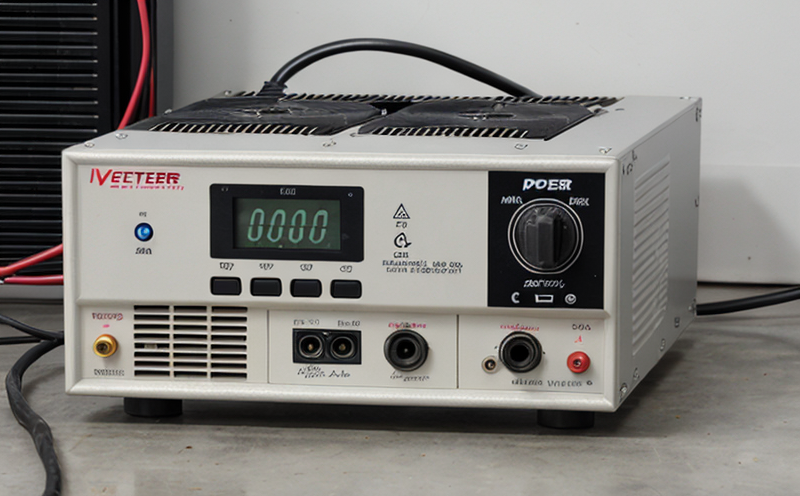EN 50530 Efficiency Testing of PV Inverters
The European Standard EN 50530 is a critical specification for the efficiency testing of photovoltaic (PV) inverters. This standard ensures that all tested devices meet stringent performance criteria, which are essential for grid integration and maximizing energy yield.
EN 50530 covers the measurement of electrical parameters such as input current, output voltage, power factor, efficiency, and other related characteristics under different operating conditions. The testing procedure aims to evaluate how efficiently a PV inverter converts solar energy into usable electricity for residential or industrial applications.
The standard specifies that tests should be conducted at various points within the inverter’s operational range, including nominal, maximum power point (MPP), and minimum efficiency operation points. This ensures comprehensive evaluation of the device's performance across its entire lifespan and under real-world conditions.
For quality managers and compliance officers, understanding these parameters is crucial for ensuring that their products meet regulatory requirements. For R&D engineers, this test procedure provides a roadmap to optimize designs for higher efficiency without compromising other aspects like reliability or cost-effectiveness. Procurement teams benefit from knowing the results of these tests to make informed decisions about sourcing components.
Testing according to EN 50530 not only helps manufacturers comply with legal standards but also enhances brand reputation by demonstrating commitment to sustainable practices and technological leadership in the renewable energy sector.
- Compliance: Ensures adherence to international safety and performance regulations.
- Performance Optimization: Identifies areas for improvement in product design and manufacturing processes.
- Market Access: Facilitates easier entry into markets that require certification based on this standard.
Why It Matters
The importance of efficiency testing cannot be overstated, especially in the context of renewable energy systems. By accurately measuring and reporting the efficiency of PV inverters, we contribute to reducing energy losses during conversion processes.
Efficient inverters play a pivotal role in minimizing waste by converting solar power into electricity with minimal loss. This translates directly into cost savings for consumers who rely on solar installations for part or all of their electricity needs. Additionally, higher efficiency levels help reduce greenhouse gas emissions associated with fossil fuel generation.
From an environmental perspective, every watt saved through improved inverter performance contributes positively towards global efforts aimed at combating climate change and promoting sustainable development goals (SDGs).
R&D teams working on next-generation PV inverters can use the insights gained from EN 50530 testing to innovate more advanced technologies. These innovations could lead to further improvements in efficiency, durability, and overall performance.
Ultimately, rigorous adherence to standards like EN 50530 fosters trust among customers while driving innovation within the industry itself. It sets a benchmark for excellence that drives continuous improvement across all segments of the renewable energy ecosystem.
Eurolab Advantages
At Eurolab, our commitment to precision and accuracy is reflected in every aspect of our services. With state-of-the-art laboratories equipped with advanced instrumentation, we provide reliable EN 50530 efficiency testing tailored specifically for PV inverters.
We employ highly qualified technicians who possess extensive experience in performing these types of tests. Our team stays updated on the latest developments within both national and international standards to ensure that all procedures align perfectly with current best practices.
The results we deliver are not only accurate but also provide valuable insights into how your product performs compared to industry benchmarks. This information can be used strategically by you as part of your marketing efforts or internal quality control measures.
Our services go beyond just conducting tests; they include detailed reports that outline every step taken during the process along with recommendations for improvements where necessary. These reports serve both as documentation required by regulatory bodies and as tools for guiding future development projects.
Environmental and Sustainability Contributions
- Energy Conservation: By testing inverters according to EN 50530, we help reduce energy loss in PV systems.
- Emission Reduction: Higher efficiency means less reliance on fossil fuels, thus lowering carbon footprints.
- Sustainable Manufacturing Practices: Encourages manufacturers to adopt greener approaches throughout the product lifecycle.





